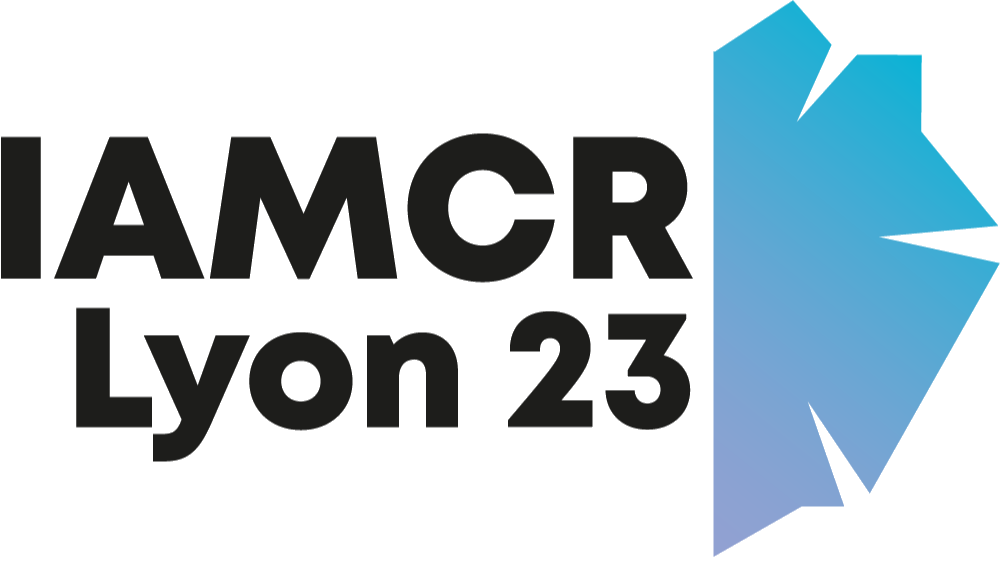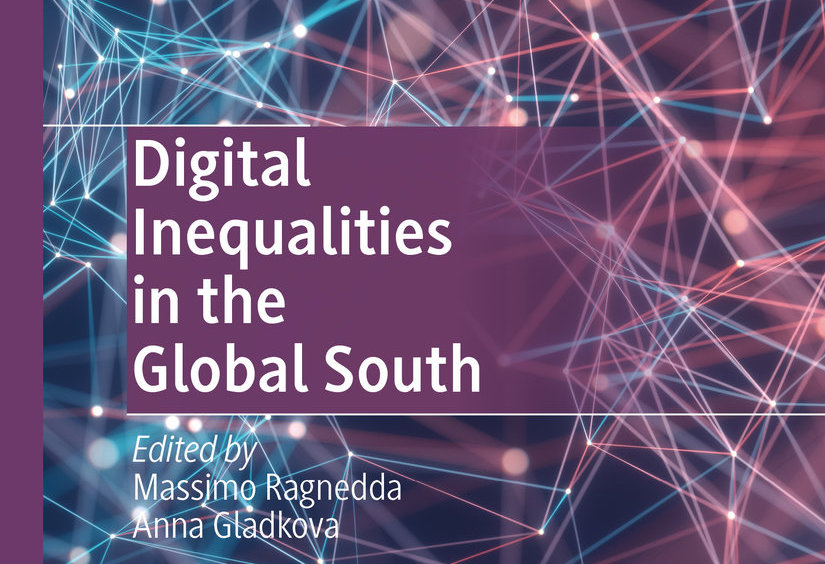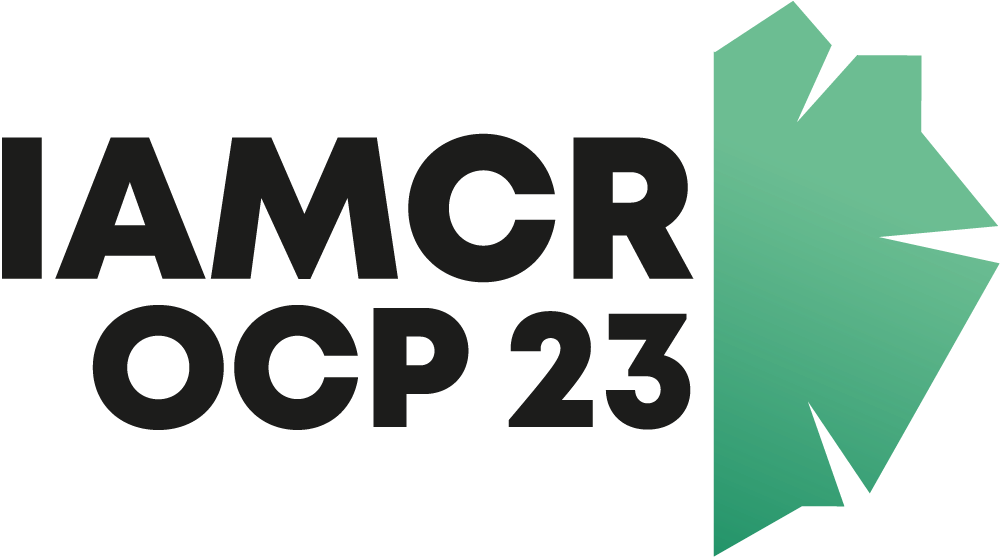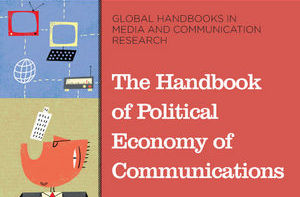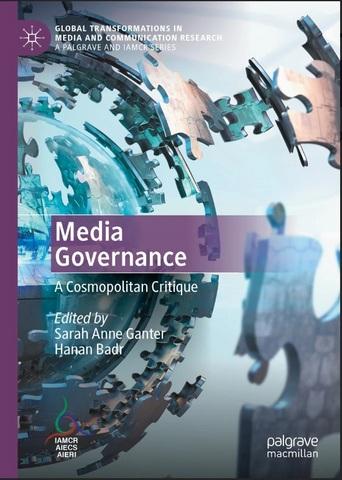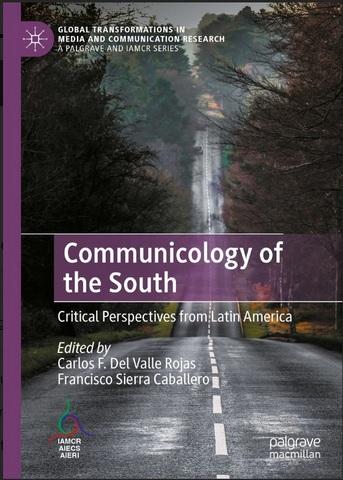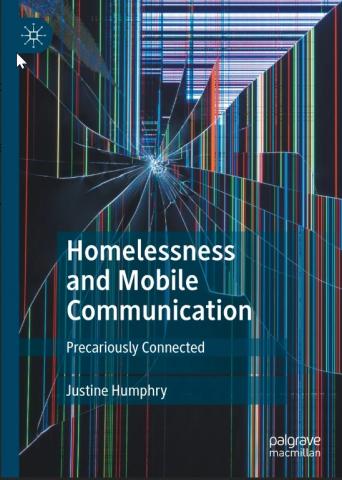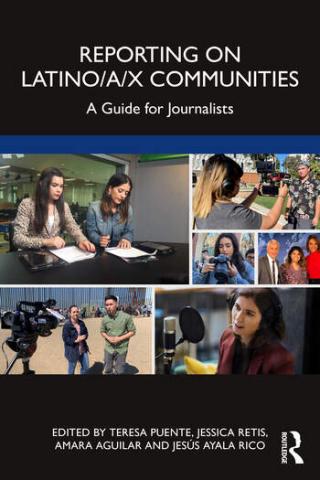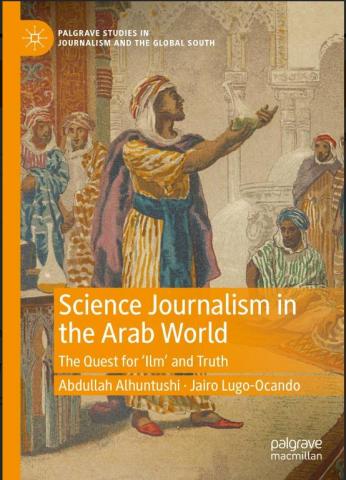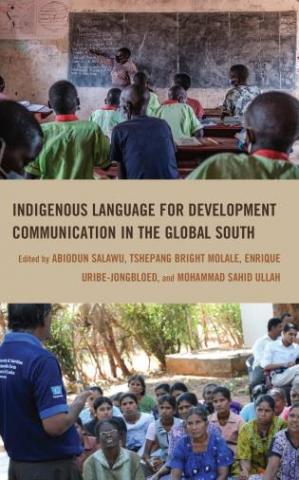IAMCR is the preeminent worldwide professional organisation in the field of media and communication research. Learn more
slideshow-2019
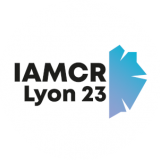
We are thrilled to announce that IAMCR 2023 has received an outstanding number of abstract submissions from authors in 90 countries. More than 2,800 asbtracts were submitted by authors for presentation both online (OCP23) and in Lyon (Lyon23) and almost 1,000 for online presentation only.

The Gender and Communication section has issued its February 2023 newsletter including information about events and publications that might be of interest to its members. Read it here.

The Political Communication Research Section issued its February newsletter with the latest calls for papers, jobs and networking opportunities, publications, and events that might be of interest to the section's members.
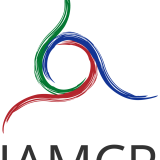
IAMCR invites PhD researchers to submit their applications to convene an IAMCR Presidential PhD Research Webinar with a topic of their choice. Applications will be received until 07 April 2023.

03 March, 2023 - IAMCR's Journalism Research and Education Section sponsored the webinar titled "Empowering Women Journalists in the Global South", reflecting upon the diverse issues that impinge on women journalists’ professional lives and thus rendering them less empowered to perform their journalistic roles.
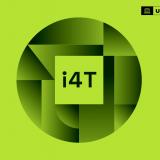
21 February, 2023 - IAMCR will host a preconference to UNESCO’s Global Conference “Internet for Trust - Towards Guidelines for Regulating Digital Platforms for Information as a Public Good” at UNESCO headquarters in Paris. The preconference is titled "Governing the Internet for Democracy: Lessons from Research Embracing a Multicentred World...

We are thrilled to announce that IAMCR 2023 has received an outstanding number of abstract submissions from authors in 90 countries. More than 2,800 asbtracts were submitted by authors for presentation both online (OCP23) and in Lyon (Lyon23) and almost 1,000 for online presentation only.

The Gender and Communication section has issued its February 2023 newsletter including information about events and publications that might be of interest to its members. Read it here.

The Political Communication Research Section issued its February newsletter with the latest calls for papers, jobs and networking opportunities, publications, and events that might be of interest to the section's members.

IAMCR invites PhD researchers to submit their applications to convene an IAMCR Presidential PhD Research Webinar with a topic of their choice. Applications will be received until 07 April 2023.

03 March, 2023 - IAMCR's Journalism Research and Education Section sponsored the webinar titled "Empowering Women Journalists in the Global South", reflecting upon the diverse issues that impinge on women journalists’ professional lives and thus rendering them less empowered to perform their journalistic roles.

21 February, 2023 - IAMCR will host a preconference to UNESCO’s Global Conference “Internet for Trust - Towards Guidelines for Regulating Digital Platforms for Information as a Public Good” at UNESCO headquarters in Paris. The preconference is titled "Governing the Internet for Democracy: Lessons from Research Embracing a Multicentred World...
- 1 of 17
- next ›
IAMCR books
Edited by Sarah Anne Ganter and Hanan Badr, this is the 19th title in the Palgrave/IAMCR book series Global Transformations in Media and Communication Research. The book offers a critical map to navigate the field of media governance.
Edited by Carlos F. Del Valle Rojas and Francisco Sierra Caballero, this is the 18th title in the Palgrave/IAMCR book series Global Transformations in Media and Communication Research. The book explores how communication confronts power, property and the market in Latin American cultures.
Members' books
By Justine Humphry, this book examines how mobile phones and the internet have become a vital part of the everyday lives of people experiencing homelessness.
Edited by Teresa Puente, Jessica Retis, Amara Aguilar and Jesus Ayala Rico, this book offers a critical and practical guide for journalists reporting on issues affecting the Latinx community.
By Abdullah Alhuntushi and Jairo Lugo-Ocando, this book examines the main issues and challenges that science journalism faces in the MENA region while analyzing how journalists in these countries cover science and engage with scientists.
Edited by Abiodun Salawu, Tshepang Bright Molale, Enrique Uribe-Jongbloed and Mohammad Sahid Ullah, this book brings together voices from the margins in underrepresented regions of the Global South, within the context of scholarship focusing on indigenous languages and development communication.
